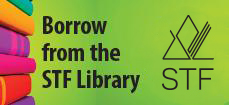Course Configurations
| (a) | Compare the advantages and disadvantages of being self-employed to being an employee. |
| (b) | Calculate gross pay for various methods of earning (e.g., hourly, salary, commission, piecework, gig employment and wages). |
| (c) | Differentiate between gross pay and net pay or “take home pay.” |
| (d) | Explore the impact of different pay periods (e.g., project completion, weekly, bi-monthly and monthly) on managing one’s finances. |
| (e) |
Examine the responsibilities of employers, including those conducting business on First Nations reserves (e.g., urban) with respect to such things as:
as outlined in provincial and federal legislation. (e.g., treaty education outcome TR10 - Examine contemporary economic implications of Treaties for all the people of Saskatchewan and other Canadian jurisdictions). |
| (f) | Examine the ethics, legality, financial implications and human impact associated with various ways of paying for work (e.g., bartering and under the table payments). |





This Canadian resource supports the Financial Literacy curriculum and provides information at a suitable introductory level. The resource is organized under six headings for a total of 15 modules.
Topics covered:
- Goals, Values and Decision-making
- Getting and Earning Money
- Spending Money and Taking Control
- Borrowing Money and Using Credit
- Saving and Investing Money
- Protecting Assets and Planning for the Future.
The resource includes:
- Student Guide, English or French, free online PDF version or hard copies can be ordered at a minimal fee
- Teacher's Guide, English or French, free online version
The Indigenous Edition of Money and Youth builds on the original resource from the Canadian Foundation for Economic Education, CFEE. Damon Johnston, President of the Aboriginal Council of Winnipeg, provided guidance rooted in traditional teachings and the Seven Sacred Laws. Vanessa Everett, CEO of Economic Development with the Keewatin Tribal Council, adapted the original version by Gary Rabbior of CFEE. Input from respected individuals across Turtle Island also helped shape this edition.
Topics covered:
- Goals, Values and Decision-making
- Getting and Earning Money
- Spending Money and Taking Control
- Borrowing Money and Using Credit
- Saving and Investing Money
- Protecting Assets and Planning for the Future.
The resource includes:
- Student Guide, English, free online PDF version or hard copies can be ordered at a minimal fee
- Teacher's Guide, English, free online version

